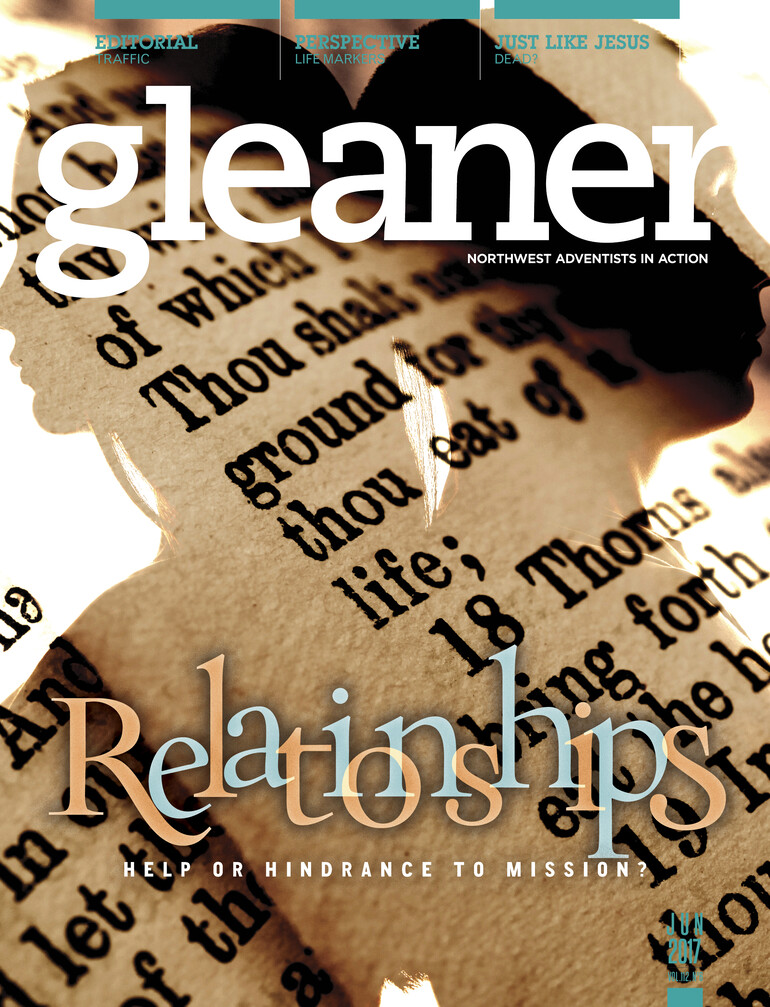I will drive miles out of my way to avoid stop-and-go traffic. Life is too short, I reason, to spend valuable moments gazing up someone’s tailpipe. It’s exhausting.
But sometimes this blessed journey we call church can feel like bumper-to-bumper traffic. This is how the wheels turn in our representative process. Papers are written, committees are formed, motions are made, programs are launched. We lay claim to new horizons an inch at a time.
Like Israel of old, some might wish for a king to autocratically determine for us how to think and believe. But that was not God’s ideal intent for Israel — or for us. He has imbued each of His children with a calling to speak on His behalf. He has granted every believer the gift of the Holy Spirit to guide and empower. The apostle Peter describes a fellowship and gospel ministry for all believers. That sounds wonderfully inclusive.
But inclusiveness is sometimes messy and slow, with all the joy of a rush-hour traffic jam. Dictatorships are tempting at times, simple and clear, one person to decide for the many. But our Adventist pioneers loathed the implications of a kingly power. Thus today, folks from all corners of this movement are eager participants in its decisions and directions.
We reported last year that Northwest membership had finally topped 100,000. Imagine writing a letter to your beloved, guided by the vocal assistance of 100,000 eager editors, each with their own word preferences and turns of phrase. Would your epistle ever reach its destination? Would its words convey your heart?
Yet this is the process we have chosen. The traffic slows to a crawl sometimes. Committee meetings and constituency agendas are filled with speeches, queries, motions, amendments and the decidedly noncharismatic raising of hands. Our well-meaning efforts to include everyone’s opinion sometimes gum up the very progress we seek. I sense the exasperation of church leaders and chairpersons when the words of a stellar proposal are parsed into oblivion. And, I understand why some members become frustrated and cynical. We are all people, and we all imperfectly mirror His plan.
And, because of that, the way forward may be counterintuitive. Humility must supplant pride. Deference must displace defiance. Reconnection must replace rebellion. These atmospheric changes are only possible when we have been driven to our knees — not simply to speak of our needs, but to listen to God's heart. And there, right there, is where divine progress in this gospel commission happens. When we recognize our human insufficiency, when we remember Sister Ellen’s conviction that “man’s extremity is God’s opportunity.”
In that crucible of faith is forged the essence of every true church. It is discovered in the stop and go of the journey itself. But no matter where you find yourself today, there is always something you can do along the lines of these few words from C.S. Lewis in the preface to Mere Christianity: “When you have reached your own room, be kind to those who have chosen different doors and to those who are still in the hall. If they are wrong they need your prayers all the more; and if they are your enemies, then you are under orders to pray for them. This is one of the rules common to the whole house.”
Do we not have a similar need with our “house” too? Instead of getting impatient or uptight when traffic slows us down, we can use it as an opportunity to pray, to rethink our own directions. When differences become overwhelmingly intense, when they seem to bar the way, there’s never a better time to heed the scriptural exhortation to stop and listen ... for Him. The unity of our movement depends on this. Pray without ceasing, engage God in a running conversation, the Good Book says. That counsel couldn’t be more appropriate, more timely, than it is for each of us today.











